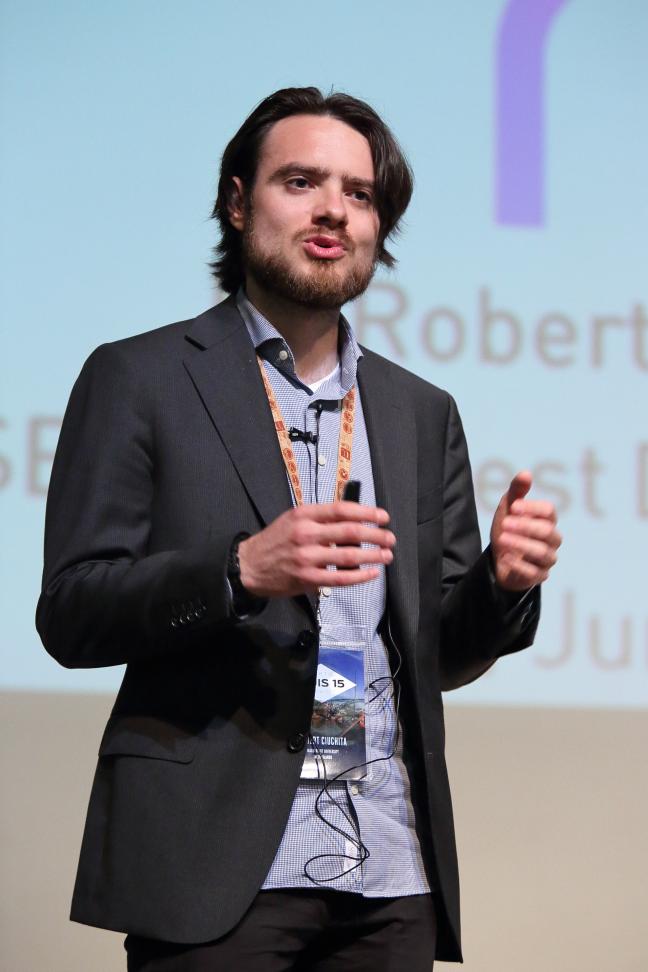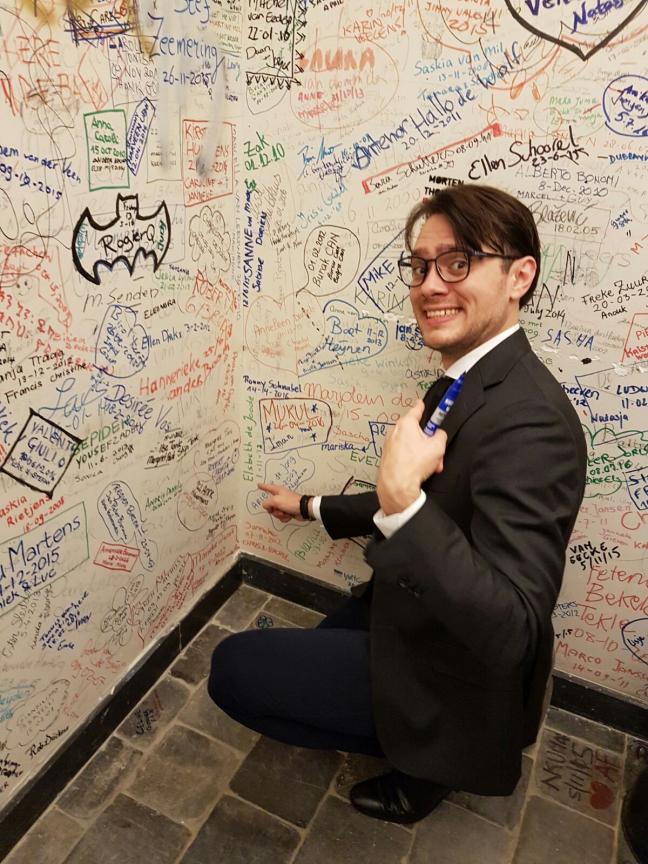In the late summer of 2009 I was leaving my home country of Romania for what I thought would only be a fast but intensive Master of Science (MSc). At that time, I had just finalized my bachelor’s degree with a specialization in marketing and I was working in strategic brand consultancy. For my Master studies, I had chosen Maastricht University in the Netherlands because they offered a one-year MSc which focused on strategic marketing. I started with a clear intention to work hard, get it done and get back to my branding work in Bucharest. If you had told me then that ten years later I would be an assistant professor in the Department of Marketing at Hanken School of Economics, I probably would have thought you had too many student-priced beers. Alas, this summer I packed my life into thirty or so moving boxes and shipped them (and myself) from Maastricht to Helsinki. As this is my first entry in the CERS blog, I thought it would be a great opportunity to reflect a bit on my journey so far.
summer of 2009 I was leaving my home country of Romania for what I thought would only be a fast but intensive Master of Science (MSc). At that time, I had just finalized my bachelor’s degree with a specialization in marketing and I was working in strategic brand consultancy. For my Master studies, I had chosen Maastricht University in the Netherlands because they offered a one-year MSc which focused on strategic marketing. I started with a clear intention to work hard, get it done and get back to my branding work in Bucharest. If you had told me then that ten years later I would be an assistant professor in the Department of Marketing at Hanken School of Economics, I probably would have thought you had too many student-priced beers. Alas, this summer I packed my life into thirty or so moving boxes and shipped them (and myself) from Maastricht to Helsinki. As this is my first entry in the CERS blog, I thought it would be a great opportunity to reflect a bit on my journey so far.
Before my MSc, I had gained some experience with applied research during my branding consultancy work. Particularly, we were applying a brand auditing methodology that involved conducting interviews with top and middle management, sending out a questionnaire to all the other employees, analysing the data, deriving the brand identity and making recommendations. I very much enjoyed that process and was particularly intrigued by how different people within the same company perceived differently what their organisation stood for.
However, during my MSc, I was a bit shocked to realize that there are some differences between academic and practice-oriented research. While the tools available were the same, academic research had to blend solving a managerial problem with theoretical relevance and much more methodological rigor. When I had to choose a topic to write my MSc thesis, I remember how frustrated I was to realize the research questions I came up with had already been addressed by existing research. Sensing my predicament, my supervisor shared an academic article that was listing some important managerial problems that needed more research. Reading that article opened the world of service research to me.
My MSc thesis became about customer co-creation in service innovation and it was a beautiful failure. While I had the best intentions and I was trying hard (e.g., I developed a complicated experiment), I was making rookie mistakes. For example, I was focusing too much on operational details (e.g., I could not find support for one hypothesis) rather than on the big picture (e.g., what my research was about, why it mattered and to whom). Nevertheless, that ex perience sparked my interest in service research and fuelled my ambition to pursue a PhD once the opportunity presented itself. To be honest, even during the first years of my PhD I did not really consider an academic career. I just wanted to learn how to do great research and hopefully get it published.
perience sparked my interest in service research and fuelled my ambition to pursue a PhD once the opportunity presented itself. To be honest, even during the first years of my PhD I did not really consider an academic career. I just wanted to learn how to do great research and hopefully get it published.
Equal part agony and ecstasy, doing a PhD was a five-year discovery journey that changed my life. It changed how I think, how I look at the world and how I perceive myself. It was the most difficult task to finalize, because it made me face a level of frustration I had never experienced before, and it made me doubt myself and my capabilities. It was also the most enriching task to finalize, because it turned me into a more critical thinker and a more innovative problem-solver. Doing a PhD taught me the true meaning of teamwork and the true value of feedback. Through research projects, conferences and workshops I met some fantastic people in the service research community who taught me so much about work and life. Eventually, I defended my PhD dissertation entitled User Engagement with Digital Service Innovation and applied for an assistant professor position at Hanken School of Economics.
Why did I decide to continue doing academic research? I realized I love the university world because it allows me to continue investigating phenomena that intrigue me, learn new things and collaborate with new people. Like in my consultancy days, I still work with companies on issues they find challenging, but nowadays I also put my research to the scrutiny of the academic community and try to bring relevant theoretical contributions. Furthermore, I get to “walk the talk” through my teaching. Why did I choose to come to Hanken? I realized that my approach to research was mirroring the Nordic School and I wanted to be part of a thriving community with great heritage in service research. I am very happy to be here and look forward to the years to come!
1. Me presenting at QUIS 15 in 2016 (Porto, Portugal) when I was nominated for the SERVSIG best dissertation award.
2. Maastricht University tradition: a PhD candidate who is about to defend his or her thesis has to wait in a small room to be summoned by the corona. The candidate writes his name on the wall in this room before the defense.
